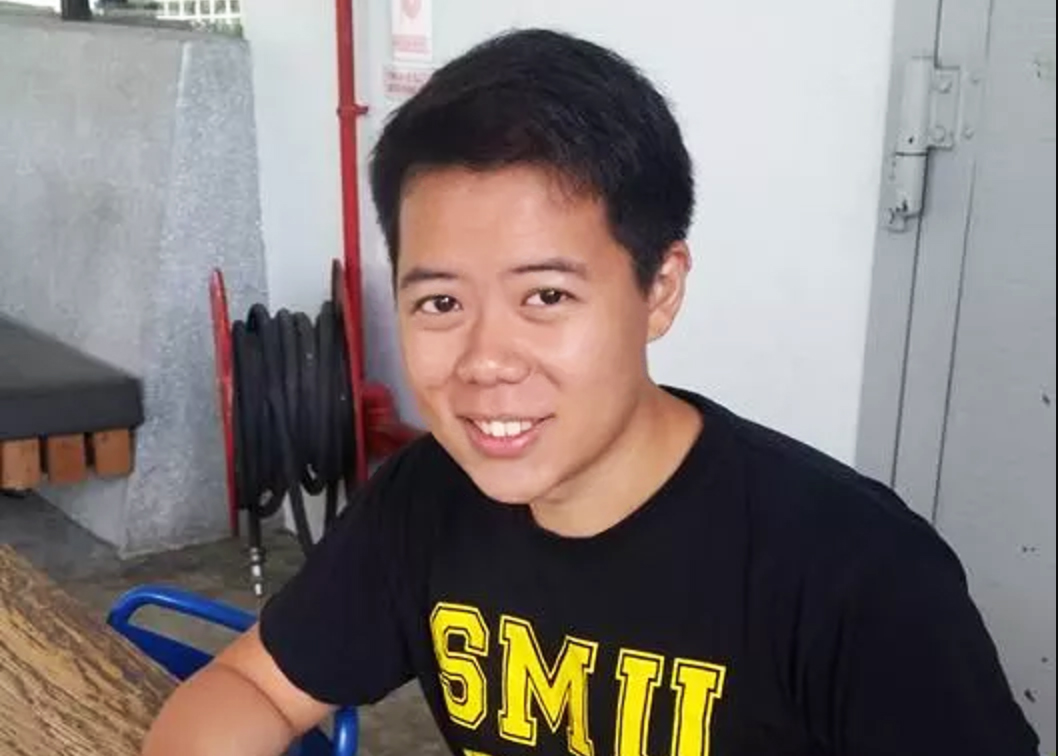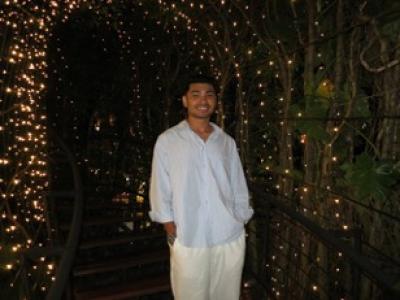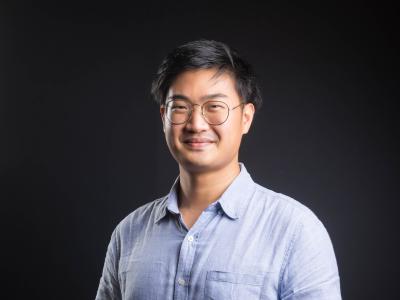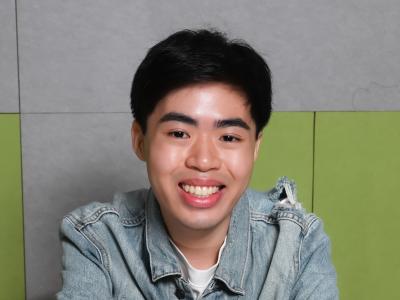
Education is one of the most important factors that influence a person's resources and experiences, and we want to share experiences of the up-and-coming generation professionals in Singapore. In this regard, our team at ValuePenguin has been preparing a series of Q&A interviews featuring top students at different universities in Singapore.
This interview is with Jaren Lim, an Information Systems student seeking his bachelor's degree at SMU, expecting to graduate in 2019. We recently spoke with him and asked him about his experience within his programme and what he's planning to do with his professional future.
What influenced you to pursue a degree in Information Systems? What excites you intellectually?
Since young, I’ve been interested in how organisations function, enjoying TV shows such as Undercover Boss and How It’s Made. I am also passionate about information and technology, making it a point to follow different developments in the STEM arena.
With these proclivities, I was drawn to how the SMU School of Information Systems (SIS) pedagogy marries technical expertise with business acumen. Through my time in pre-university education and my National Service stint, I came to understand the importance of having both technical expertise and social skills. Hence, SMU-SIS was a natural choice for me.
I revel at opportunities to learn and realise that this happens on every occasion. In a way, that might make me kind of an optimist!
What has your experience in the programme been like at SMU?
My experience in SMU has been incredible. I'm really amazed at how vibrant the school culture is, grateful for the friendships so easily formed, and how we can discuss the modules and activities shared.
In particular, I'm so impressed with the SIS programme: Faculty and staff who are learned yet approachable, making every attempt to ensure we understood what is taught. Seniors who freely provide help and advice, pretty much kickstarting the bonding among fellow freshmen with whom I had, have, and will still have the opportunity to work hard and have fun with throughout my SMU journey!
Were there other schools you were considering, and if so, why did you choose this one?
I was considering the other Singapore universities. However, I found that only SMU provided an Information Systems syllabus that has equal emphasis on both business and technology. I was also drawn to the project-heavy curriculum, as Project Work was my favourite subject in Junior College (a very rare sentiment among my peers).
What is your favourite class so far, and why?
It’s hard for me to pinpoint a single favourite class, as I’ve enjoyed each one of my classes. A particularly memorable class for me was Data Management, where I learnt the intricacies behind searching, sorting and retrieving data. It was eye-opening to see the way data – something that everyone handles on a daily basis – is modelled and manipulated. My experience with Data Management influenced me to enrol into the Advanced Data Management class as well.
What conversations excite you?
Conversations, in general, excite me, as I greatly enjoy and treasure such social interactions. I find myself learning something new through each conversation, be it an intellectual discussion, heart-to-heart talk or humorous banter. I enjoy conversing with people from different walks of life, as they provide me new perspectives and thinking.
How do you challenge yourself to do well in your university life?
I classify my university life into three distinct categories, namely intellectual, social and personal. In each category, I give myself objectives to fulfil. Examples of these objectives are “I would like to learn XXX skill” (intellectual), “make at least 1 new friend in class, and get to know my professor better” (social), and “I want to apply XXX concept in my personal life” (personal). I formulate many goals in these categories and constantly review them, to take stock on how close I am to achieving them.
I also choose to take on additional responsibilities through co-curricular activities, employment in university, and volunteerism. At times, the combination of school work and these additional responsibilities engender hard times. However, I see them as opportunities for one to expand one’s talents. For talent multiplies when it is invested and utilised. And in such times, the way one reacts builds stature – that immutable quality which is forged through adversity.
Based on the general education classes you take (and what you hear from your peers in other majors), what is unique about the nature of your major’s classes?
The SMU-SIS curriculum is unique not only in terms of content, but also in delivery. For instance, our programming classes make use of a flipped-classroom setup, where students view lectures online before class, and make use of lesson time for completing coding labs and exercises. The lesson time is also used for consultation, where students are able to clarify any doubts they have.
In addition, most of the SMU-SIS cohort undergo the cohort-wide classes during the same academic semester. This creates a common understanding and identity among students, where we frequently discuss our classes and exchange ideas with each other. Due to our project-intensive coursework, many of us can be seen around the SMU-SIS building, engaged in project work. This results in bonding across different project teams, as we understand each other’s struggles. An outstanding example of this SMU-SIS camaraderie was during the preparation of the final exam for the Seminar in Information Systems class. We were given our exam case study 72 hours before the exam and the entire cohort worked together to dissect the case. We booked seminar rooms, conducted case facilitations, and aggregated the ideas that each person contributed.
What has been the most challenging aspect of this area of study, and was this something you had originally anticipated? Is there anything you wish you had known about this major ahead of time before choosing this career path or anything else you would like to share?
Learning computer programming was something very new to me, as I did not have much experience prior to SMU-SIS. I anticipated a huge learning curve that needed to be overcome, but it was ultimately much less difficult that anticipated thanks to professors and seniors who helped me with learning programme logic. It is a testament to how they genuinely have your best interests at heart and wish to see you succeed. I am fortunate to have friends already pursuing Information Systems before I entered SMU, thus I had the chance to learn from their experience in the programme.
A very important trait to have is resourcefulness. Hence, I strongly believe that one must take the initiative and responsibility to research and learn.
What are the best ways to network with your peers within your major? Clubs, study groups, online communities, etc.?
I think physical space in campus is integral to relationship building. These commons spaces allow my peers and me to be in close proximity to each other, and easily converse. In SMU-SIS, we have a study space that is affectionately known as “R-Labs”, where students head to before and after classes. It has been used for studying, school camps and even “camping” in school during the school term. This is a place where every SMU-SIS student will hold many memories of – in fact, we even held a potluck steamboat dinner in R-labs!
Social activities and clubs are also great ways to meet new people. I am actively involved in the Whitehat Society, a cybersecurity interest group and Project Tacloban, an overseas community service group. These co-curricular activities gave me the opportunity to meet various peers and learn more about their interests and sense of humour. Ultimately, university life is also a social experience thus it is beneficial to connect with people.
Have you participated in any internships? If so, how many, how were they, and did you find the school’s resources to be helpful in helping you find this opportunity? If not, when will you apply for internships, and what is that process like?
I did a cybersecurity internship at EY. It allowed me to be privy to the pertinence of cybersecurity in the industry. A particular standout experience for me was learning PLC Ladder Logic, a completely new domain for me as it required a background in electronics engineering. PLC analysis was required for my team’s audit of an industrial water treatment testbed. Nevertheless, I was glad to be able to apply programme logic learnt from Information Systems and assimilate PLC knowledge, such that I was able to contribute effectively to the team via analysis of the testbed’s PLC architecture.
I received very useful guidance from my professors Yeow Leong, Gilbert Tan and Saumya Sindhwani in preparation for this internship. Throughout my internship stint, the SMU Dato’ Kho Hui Meng Career Centre (DKHMCC) greatly aided me with the admin processes, such that I could concentrate on the work experience at EY. The workshops that DKHMCC provided also helped me better understand the social nuances required in the working world.
What are your future career plans and aspirations? What is your motivation in life?
In the long term, I aspire towards being in a CXO role of a >200 employee organisation. In order to attain such a position, I believe that it is important to build up both status and stature. Within the realm of IT, which I plan to be based in, I would first see myself doing a technical job to get my hands dirty and clock a couple years’ of experience under my belt. I will also strive towards being a leader in any capacity, be it an official appointment or otherwise. I believe that leadership is not about status, but rather that of responsibility – the willingness and desire to take ownership and bring all parties to reach a higher level of success. Responsibility is additional work, but I believe that it is to be embraced and not shunned.
Maxims mean a lot to me. I use two maxims to guide my life. The first is to “be kind, be grateful, be engaged”, which was presented in a speech by the late former President SR Nathan. It is important for me to be engaged, learning through action and interaction with others. This has made ICT such a perfect fit with my personal values – much like ICT, I too must evolve at a fast pace. To me, all this growth and action has to be rooted in being grateful. I am not solely responsible for my successes, and I must acknowledge and appreciate the myriad of factors that aid me. In every dealing, I believe in embodying kindness, putting the emphasis on people. The second maxim is one that I created for myself – “goodness before greatness”. When ruminating upon Shakespeare’s famous quote on greatness, I decided that greatness is not something I want to chance upon. Greatness comes with responsibility and authority, which I firmly believe, must be honed and anchored in goodness.
What is the best piece of advice related to your field of study that you have received?
“Focus on learning, and how to learn. Results are a byproduct of your commitment and passion”.
This was the advice given by the then Dean of Information Systems, Professor Steven Miller, during the SMU-SIS welcome reception. I have found this advice highly useful, as it challenged my perspective on academic grades. Many times, we find ourselves caught in a rat-race, seeking to compare our standing against others. Learning to learn is an immensely powerful objective to hold, which inspired me to devise my aforementioned success indicators in intellectual, social and personal spheres.
This advice also relates to being resourceful and proactive, for learning must be sought after actively. It is possible to go through school and work as a chore, without taking away any learning. That would be such a pity.
What advice would you give someone else trying to break into this field?
Don’t be afraid, go for it! The ICT industry may appear to be daunting, with coding, hacking and infrastructure looking scary to the untrained yet. However, that is not the case. I have found the ICT industry to be very welcoming and collaborative, and one that rewards your passion and proactivity in it. It is imperative to seize every opportunity as a learning opportunity. I find it important to internalise the value of the Chinese idiom 不耻下问, which is to humble oneself to learn from others who may be “beneath” you in status. In truth, however, it is unhealthy to make such comparisons and belittle others.
How are you financing your education, and what are your most helpful online resources or tools?
I am currently taking a student loan to cover my tuition fees. I also work in university during the school term, where I have roles as a Teaching Assistant for a number of classes that I did well in, a Student Interns at a data analytics research lab, and helping out with administration in different school offices. I believe that taking on responsibilities outside of my academic workload helps hone my discipline and engagement.
What resources or information would you like to help you think about your career that you’re not currently getting?
I would appreciate having mentorship opportunities, both in being mentored and being a mentor. I believe that mentorship (and reverse mentorship) will enable me to learn through human connection and interaction, transcending any learning from the classroom.
Do you have favourite books that have informed your outlook as an aspiring professional or leader? If so, please name them and describe why there are important to you...
One of the most influential books that I’ve read would have to be the Last Lecture by Randy Pausch. Pausch penned his last series of lectures as a dying man, battling cancer. Yet his writing was filled with such sincerity and hope. That dissonance was very striking, and it made me question my purpose in life. Pausch brings forth three points, namely to look at one’s childhood dreams, enable the dreams of others, and to actively reflect on one’s actions. I believe that his expertise in computing technology also played a role in inspiring me to pursue ICT.
Some other notable works that I have really benefitted from reading are the 21 Irrefutable Laws of Leadership by John Maxwell, the Tipping Point by Malcolm Gladwell, the Confidence Gap by Russ Harris and Pathological Altruism by Barbara Oakley.
This article was originally published on The SMU Blog.


